From April 12 to 13, 2024, the Inaugural Conference of the China Association of Foreign Languages Curriculum Studies (CAFLCS) and the First National Symposium on the Theory and Practice of Foreign Language Curriculum were ceremoniously held at Nankai University. The conference was organized by the China Association of Foreign Languages Curriculum Studies (CAFLCS), hosted by the School of Foreign Studies at Nankai University, and co-sponsored by the Foreign Language Teaching and Research Press, the Editorial Board of Foreign Language Education in China, the Editorial Board of Shandong Foreign Language Education, and the Editorial Board of Researching and Teaching Chinese as a Foreign Language. More than one hundred foreign language teaching and research experts and scholars from various colleges and universities witnessed the official establishment of CAFLCS and engaged in in-depth discussions and exchanges on the theoretical and practical issues of foreign language curriculum.
The agenda of this meeting is divided into three items. The first item on the agenda is the First Plenary Session of the First General Meeting and the First Council of the China Association of Foreign Languages Curriculum Studies. This session will cover the introduction of the preparatory situation of the China Association of Foreign Languages Curriculum Studies, the agenda of the First General Meeting, and the election of the First Council. The meeting elected Professor Zhang Wenzhong of Nankai University as the president of the committee, Professor Chang Junyue of Dalian University of Foreign Languages, Professor Chen Xinren of Nanjing University, Professor Hu Qiang of Xiangtan University, Professor Jiang Yajun of Xi’an University of Foreign Languages, and Professor Wen Xu of Southwestern University as the vice-presidents, and Professor Li Min of Nankai University as the secretary-general.
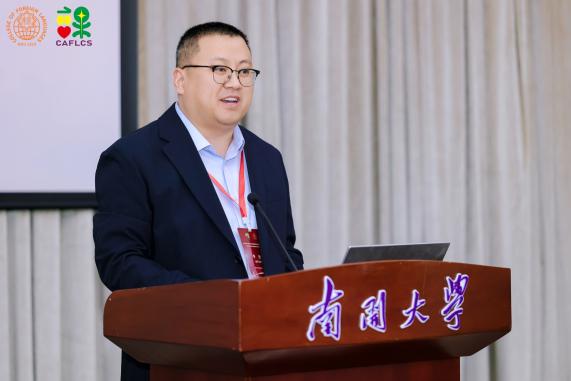
Professor Zhang Wenzhong Professor Li Min
The second item on the agenda is the inaugural meeting. The opening ceremony of the inaugural meeting was presided over by Professor Zhang Wenzhong, Chairman of CAFLCS from the School of Foreign Studies at Nankai University. Professor Sheng Bin, a member of the Standing Committee of the Party Committee of Nankai University and Vice President of Nankai University, delivered a welcome speech. Professor Sheng Bin proposed three tasks of CAFLCS: First, to innovate based on successful practices in the past on the theory and practice of foreign language curriculum, and to promote the comprehensive development of foreign language curriculum reform of various academic sectors; second, to stay focused and collaborate in reshaping the curriculum system and enhancing curriculum development, thereby advancing the development of top-tier majors and curriculum; third, to keep up with current trends by engaging in academic exchanges and facilitating the dissemination of accomplishments to enhance the overall enhancement of the national foreign language education capacity. He hoped that the Foreign Language Curriculum Research Committee of the Chinese Society for Comparative English and Chinese Studies would make distinctive contributions to the great rejuvenation of the Chinese nation.
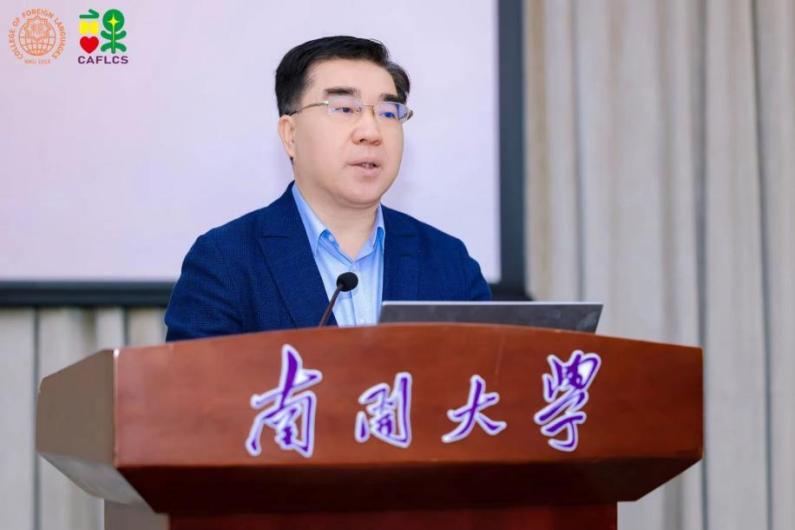
Professor Sheng Bin
Professor Shang Xin, Vice President of the China Association for Comparative Studies of English and Chinese (CACSEC) and Dean of the School of Foreign Languages, Shanghai University, read out the letter of approval for the establishment of CAFLCS. Professor Wang Wenbin, Vice President of CACSEC, Director of China Foreign Language and Education Research Center of Beijing Foreign Studies University, Professor Chen Fachun, President of Tianjin Foreign Studies University, Professor Wang Zhuo, Dean of School of Foreign Languages of Shandong Normal University, Dr. Chang Xiaoling, Associate Editor-in-Chief of Foreign Language Teaching and Research Press, and Professor Yan Guodong, Dean of School of Foreign Languages of Nankai University, delivered speeches respectively. At the end of the opening ceremony, the Secretary-General, Professor Li Min, announced the organizational structure of the Specialized Committee and presided over the issuance of the appointment certificates of the president, vice president, executive director, director, and experts.
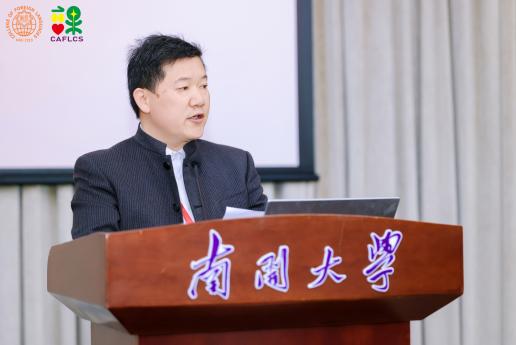
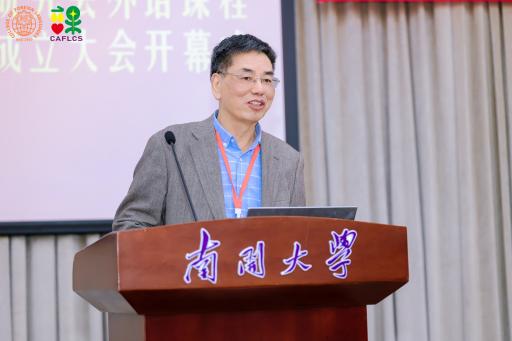
Professor Shang Xin Professor Wang Wenbin
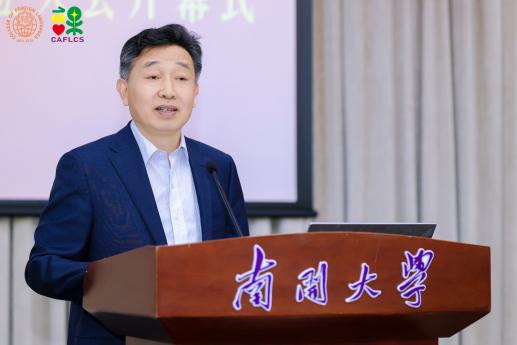
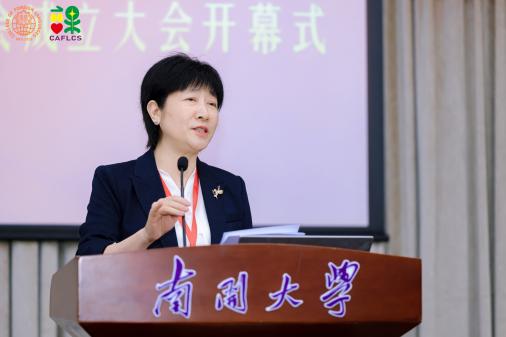
Professor Fachun Chen Professor Zhuo Wang
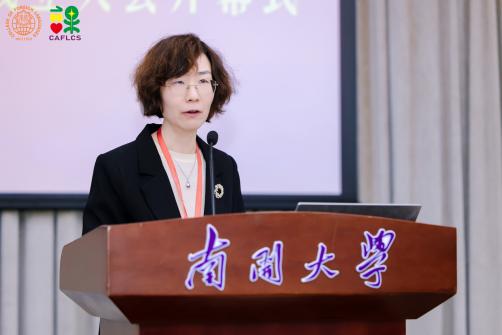
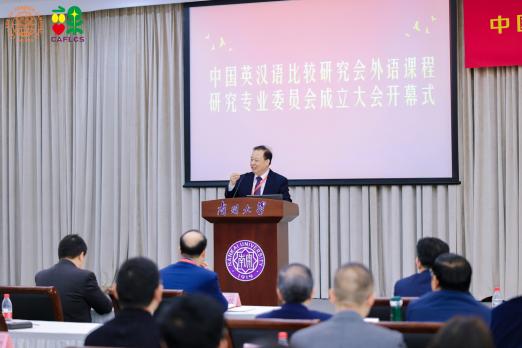
Dr. Chang Xiaoling Professor YanGuodong
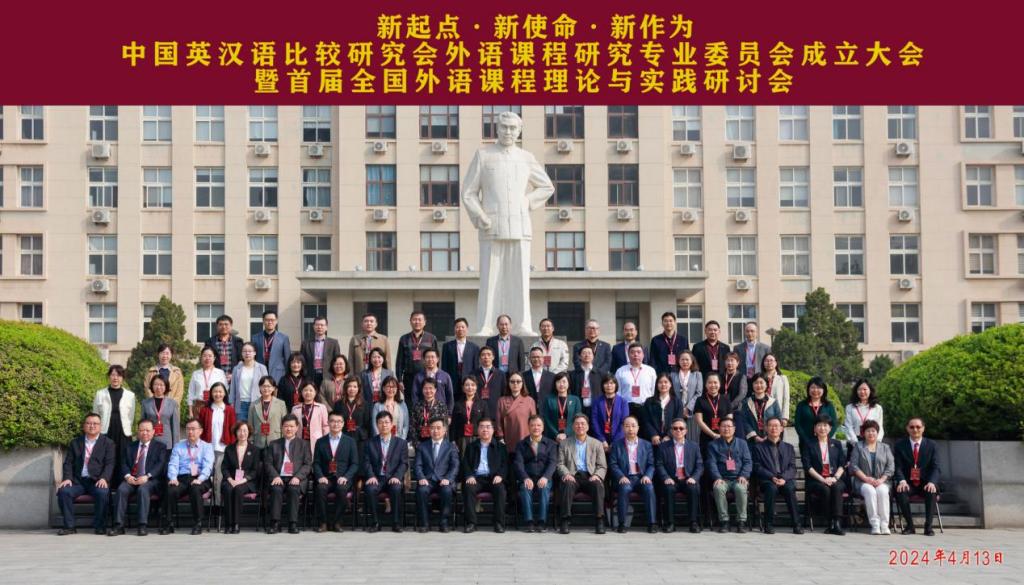

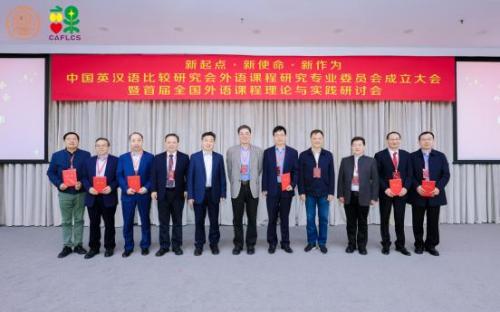
The third activity on the conference agenda was the First National Symposium on Theory and Practice of Foreign Language Curriculum, which included a keynote presentation and a working department forum.
Hosted by Professor Jiang Yajun from Xi’an International Studies University, Professor Chai Kaiying from Zhejiang Foreign Languages College delivered a keynote speech titled “Reform of Integrated Curriculum for English Teacher Training Program”. Professor Chai elaborated on the reform of the English teacher training program at Zhejiang Foreign Languages College, focusing on five key aspects: disciplinary background, practical issues, bridge concept, practical experimentation, and practical outcomes. Professor Chai emphasized the importance of resource integration, curriculum integration, and teacher integration. He used the bridge course “Second Language Acquisition and Primary and Secondary English Teaching” as an example to elaborate on the embodiment and practical application of these integrations in specific courses. For instance, he discussed the use of the “Problem-Driven - Inquiry Learning” approach, the adoption of the “PBL approach” for inquiry-based learning, innovative teaching methods, and the four-dimensional “two characteristics and one-degree” teaching evaluation.
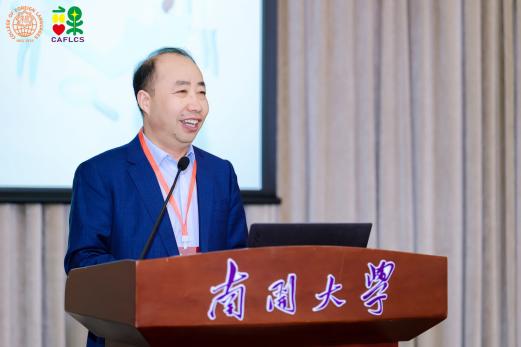
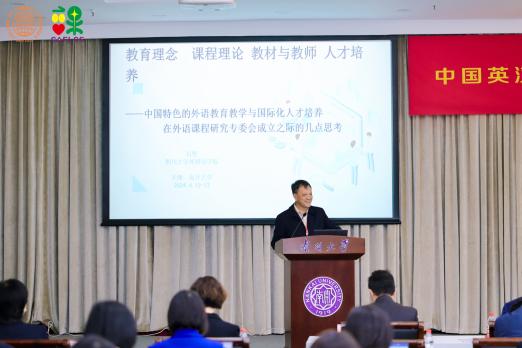
Professor Chang Junyue Professor Shi Jian
Professor Xia Yang from Dalian University delivered a keynote speech entitled “The Mining of Ideological and Political Education Elements in Foreign Language Courses and the Construction of Knowledge Networks,” moderated by Professor Wen Xu from Southwest University. Professor Xia Yang’s research questions include how to extract high-frequency ideological and political elements in Chinese and English using corpus methods, and how to construct a knowledge network of these elements with the assistance of corpus analysis tools. With the assistance of the LancsBox (v.6.0) visualization corpus software, the study conducted the mining of core ideological and political elements and constructed a collocation map of these elements. Based on the findings of the study, Professor Xia Yang proposes that the data-driven model of Ideological and Political Practice in Foreign Language Courses can be roughly divided into four steps: theme selection, technology application, language integration, and value leadership.
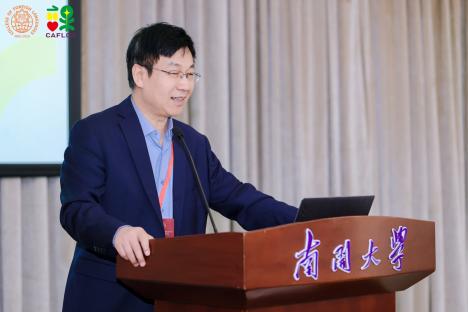
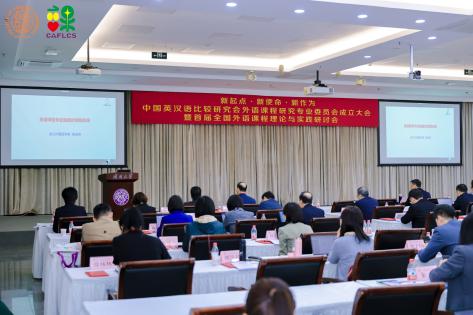
Professor Jiang Yajun, Professor Chai Changying gave a keynote speech on the line
Professor Xia Yang of Dalian University gave a keynote speech titled “The Mining of Ideological and Political Education Elements in Foreign Language Courses and the Construction of Knowledge Networks”, which was moderated by Professor Wen Xu of Southwest University. Professor Xia Yang’s research questions include how to mine Chinese and English high-frequency Ideological and Political elements through corpus methods and how to build a knowledge network of Ideological and Political elements with the help of corpus analysis tools. With the help of the visualization corpus software LancsBox (v.6.0), the study completed the mining of core Ideological and Political elements and the construction of core Ideological and Political elements collocation map. Based on the findings of the study, Professor Xia Yang proposes that the data-driven model of Ideological and Political Practice in Foreign Language Courses can be roughly divided into four steps: theme selection, technology application, language integration, and value leadership.
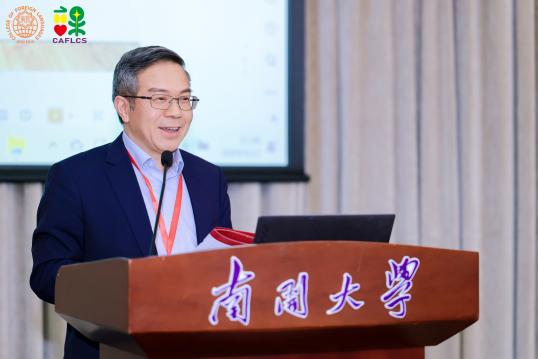
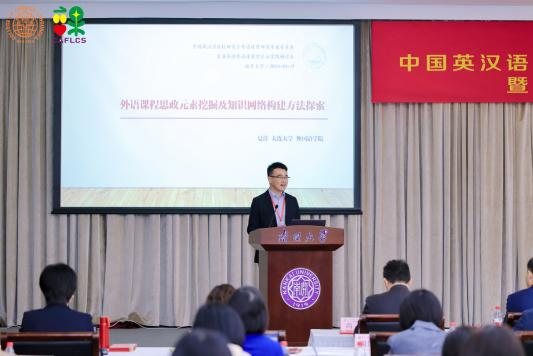
Professor Wen Xu Professor Xia Yang
Professor Pan Zhen from Guangdong University of Technology delivered a presentation titled “Exploration and Practice of the Curriculum for Cultivating Compound Talents in Foreign Language Undergraduate Programs,” which was moderated by Professor Shang Xin from Shanghai University. Firstly, Professor Pan Zhen began with the aim of cultivating foreign language talent. He believed that in the new era, fostering foreign language talents should emphasize the integration of language and various disciplines. This includes integrating foreign languages with international communication, international organizations, and global governance, as well as incorporating artificial intelligence, big data, and related disciplines. The disciplines involved may include journalism, communication, the theory and practice of international relations, and natural language processing.
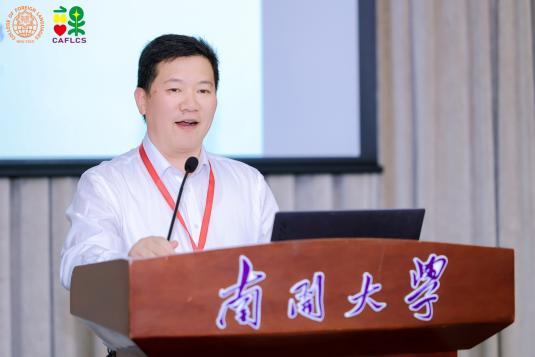
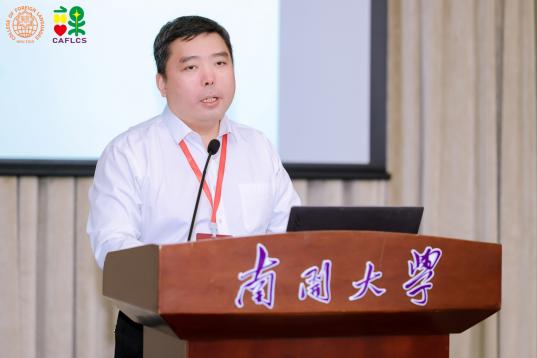
Professor Shang Xin Professor Pan Zhen
Hosted by Professor Yang Lianrui from the Ocean University of China, Professor Wang Jinquan from Yangzhou University delivered a keynote speech titled “Foreign Language Specialized Curriculum Construction and Practice in the Era of Artificial Intelligence”. Professor Wang emphasized that under the backdrop of the digital transformation of education, foreign language teaching has exhibited new characteristics that differ significantly from the past in terms of teaching environment, tools, resources, and methods, such as integrated and immersive teaching environments. Taking the core course of English (pedagogical), “Secondary School English Course and Teaching” as an example, Professor Wang Jinquan explained in detail the characteristics and innovations of the course in the context of the artificial intelligence era. He also provided an outlook on the future design of foreign language courses, which includes technology-enabled, increasingly intelligent courses, virtual reality, more three-dimensional classrooms, intelligent feedback, and personalized learning services. feedback, personalized learning services.
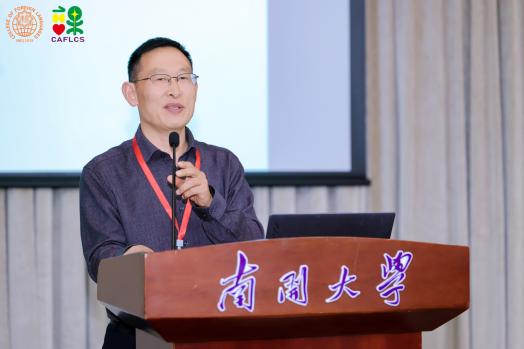
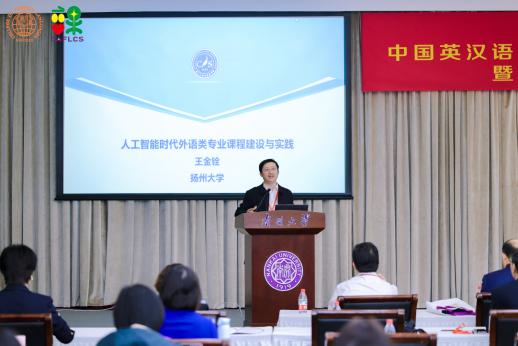
Professor Yang Lianrui Professor Wang Jinquan
Professor Yang Liangxiong from Zherong No.1 Middle School delivered a presentation titled “Implementing Interdisciplinary Thematic Learning and Demonstrating the Nurturing Value of the English Discipline,” moderated by Professor Ji Xiaoting from the School of Foreign Languages at Tianjin Normal University. Professor Yang Liangxiong’s report began by discussing the starting point and implementation path of interdisciplinary thematic learning activities from the perspective of disciplinary education. He emphasized the need for disciplinary standpoints to align with educational standpoints and advocated for a shift from a “single” curriculum to a “multi-dimensional” curriculum. Additionally, he provided recommendations on key considerations for interdisciplinary thematic learning activities within the framework of disciplinary education. Afterward, it supplements the matters that should be noted in interdisciplinary thematic learning from the perspective of disciplinary education, emphasizing its disciplinarity, comprehensiveness, practicability, inquisitiveness, and availability.
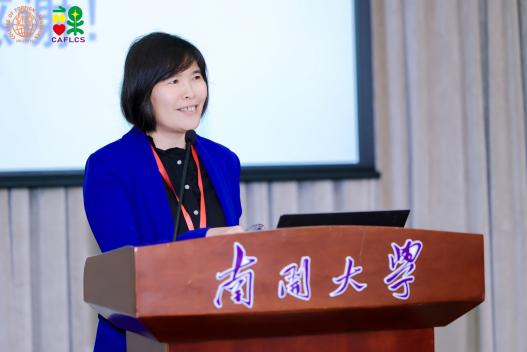
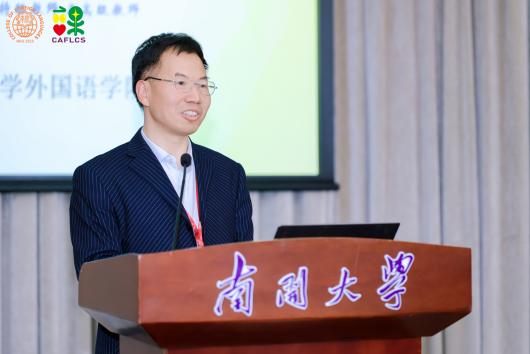
Professor JI Xiaoting Professor YANG Liangxiong
Professor Chen Chunhua from the National University of Defense Technology (NUDT) delivered a presentation titled “Construction of National Defense Language Professional Curriculum System,” which was moderated by Professor Hu Qiang from Xiangtan University. Professor Chen Chunhua’s report mainly focused on three themes: the reform situation of military and foreign countries, national defense language talents, and the construction of a curriculum system. Professor Chen Chunhua proposed that defense language-related majors should always focus on the needs of the military and national defense construction. They should constantly explore new concepts and paths for cultivating defense language talents. Professor Chen advocates for adhering to the “language, military, technology” composite talent cultivation mode and striving to cultivate distinctive and high-level defense language professionals.
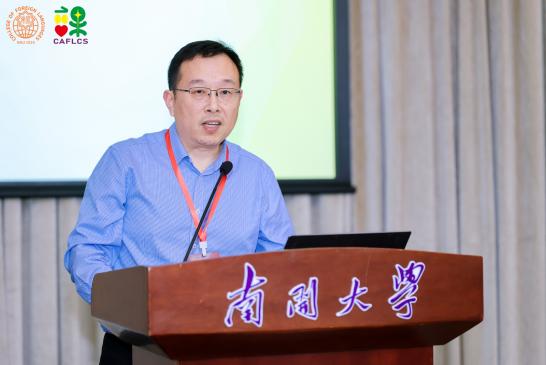
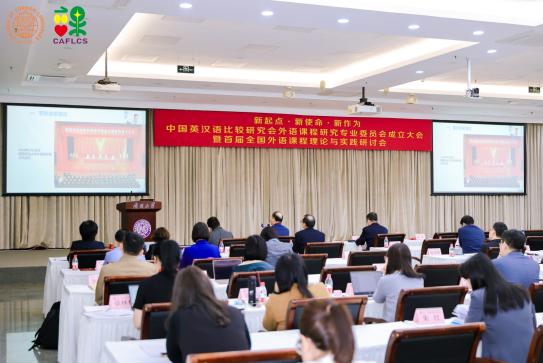
Professor Qiang Hu Keynote presentation by Professor Chunhua Chen on line
Working Department Forum, chaired by Professor Hu Qiang of Xiangtan University. Professor Xie Shijian from Guangxi Normal University, Professor Yang Liangxiong from Zherong No.1 Middle School in Fujian Province, Professor Yi Lixin from Central South University for Nationalities, Professor Wang Zhuo from Shandong Normal University, Professor Yang Lin from Nankai University, Associate Professor Wang Hong from Yunnan University of Finance and Economics, Professor Chang Junyue from Dalian University of Foreign Languages, and Professor Hu Qiang from Xiangtan University discussed and exchanged ideas with experts and scholars on the Committee’s Foreign Language Program Ideology and Politics, Primary and Secondary Foreign Language Programs, Foreign Language Programs and Disciplines in Colleges and Universities, Foreign Language Programs and Disciplines in Applied Specialties, Foreign Language Programs in Multilingualism, Comparative and Innovative Foreign Language Programs in International Programs, Curriculum, Teaching Materials Construction, and Research Ethics and Integrity.

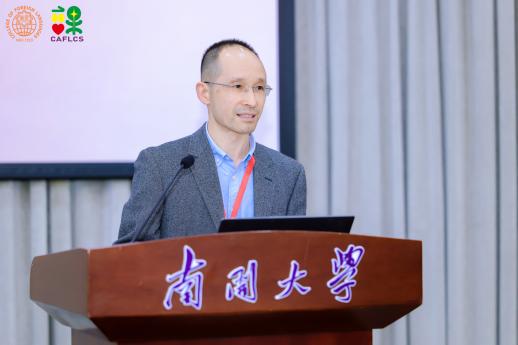
Professor Xie Shijian Professor Yi Lixin
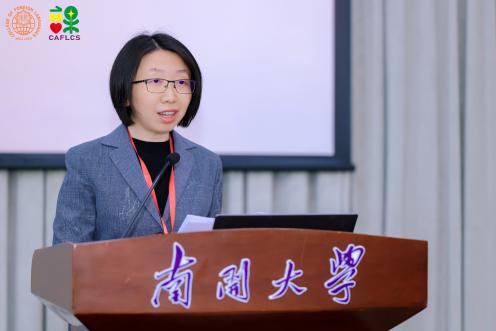
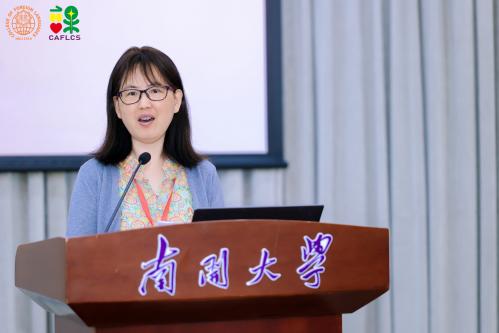
Associate Professor Yang Lin Associate Professor Wang Hong
During the closing ceremony, Professor Chen Xinren from Nanjing University provided a comprehensive summary of the conference. Following this, Professor Zhang Wenzhong, the president of the CAFLCS from Nankai University, officially declared the First National Symposium on Theory and Practice of Foreign Language Curriculum closed, marking the successful conclusion of the conference.
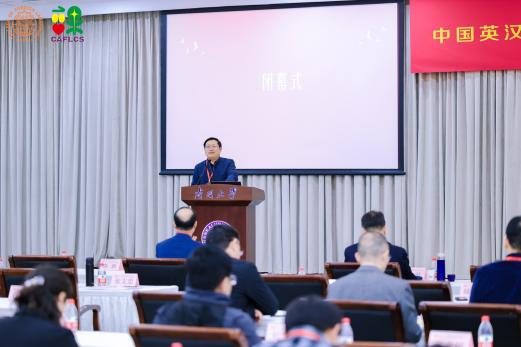
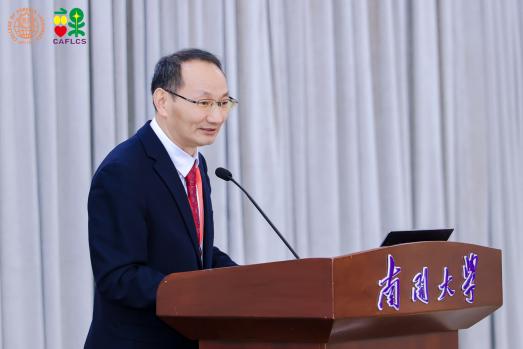
Professor Chen Xinren President Zhang Wenzhong
The inaugural meeting of CAFLCS and the first National Symposium on the Theory and Practice of Foreign Language Curriculum have established a platform for in-depth exchanges and the sharing of academic achievements in the field of foreign language education and research both domestically and internationally. The committee will collaborate with scholars both domestically and internationally, as well as colleagues in the field of foreign language studies, to advance the thriving progress of English education in China, taking into account the local context and the contemporary environment.



